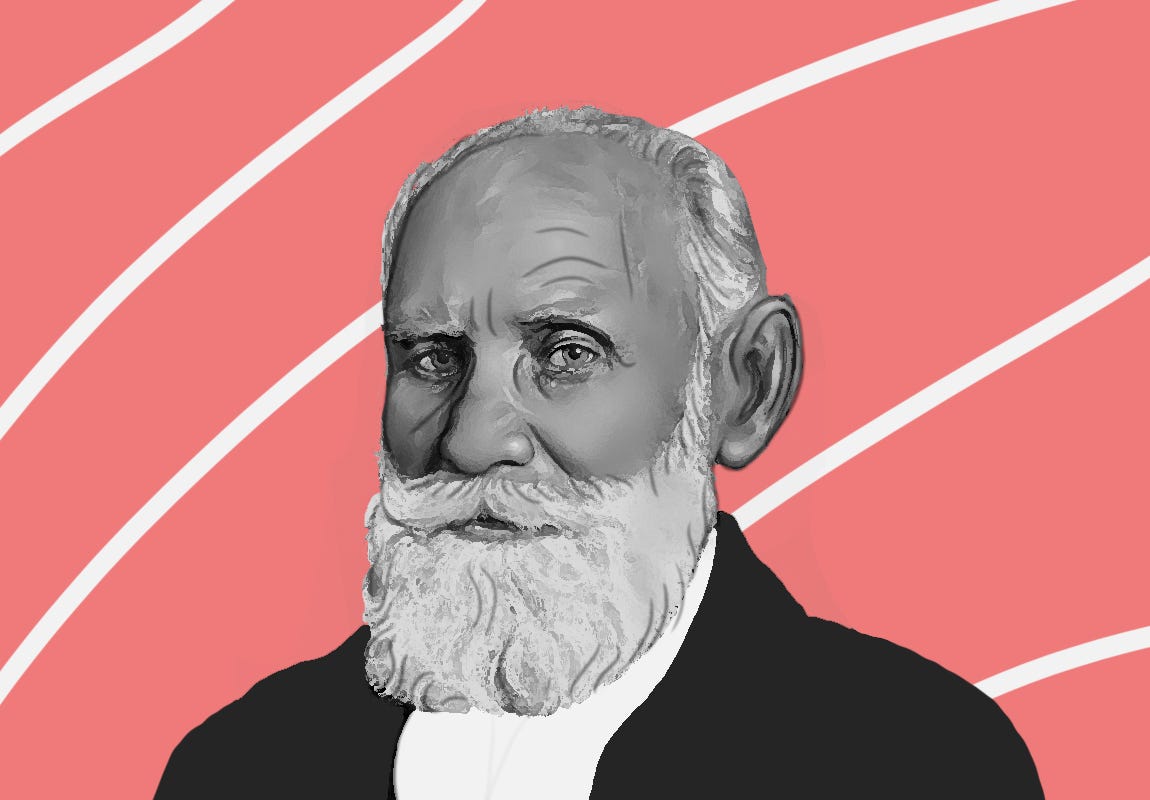Ivan Pavlov: A Dedicated Researcher Who Developed the Theory of Conditioned Reflux
Ivan Petrovich Pavlov was a Russian physiologist who developed the concept of conditioned reflex through a famous study in dogs, which has a broader application in the fields of physiology, psychology and educational theory and won a Nobel Prize in Physiology in 1904.
Ivan Pavlov was born on September 14, 1849, as the eldest child of Peter Dmitrievich Pavlov, a priest, and Varvara Ivanovna Uspenskaya in the small village of Ryazan, Russia. As the son of a priest, Pavlov went to a church school and attended a theological seminary. But he gave up theology and pursued the path of science inspired by the progressive ideas of D. I. Pisarev, Charles Darwin and the father of Russian physiology, I.M. Sechenov.
In 1870, abandoning his religious career, Pavlov entered St. Petersburg University and began studying chemistry and physiology. After graduating and earning a Candidate of Natural Sciences degree in 1875, he studied medicine at the Imperial Academy of Medical Surgery in St. Petersburg. There he trained under the prominent physiologist of the time, Sergey Petrovich Botkin, who introduced him to the human nervous system. Pavlov received his medical degree in 1879 and his dissertation in 1883, earning a gold medal for his research on the physiology of the pancreatic nerves.
Pavlov was invited to direct the Department of Physiology at the newly formed Institute of Experimental Medicine in 1890.
Pavlo was most interested in physiology and natural sciences. He had the chance to study under Rudolf Heidenhain, a prominent gastrointestinal physiologist and Carl Ludwig, a renowned cardiovascular physiologist. Working with Ludwig led Pavlo to his first independent research on the physiology of the circulatory system. From 1888 to 1890, he spent two years in Botkin's laboratory in St. Petersburg, studying cardiac physiology and blood pressure regulation.
With Heidenhain, Pavlo researched the physiology of digestion through surgical methods to study various digestive system processes. He gained an understanding of gastrointestinal secretions and the role of the body and mind in the digestive process through surgery done on a dog. He often did surgical studies on animals which was an acceptable practice back then.
Pavlov was invited to direct the Department of Physiology at the newly formed Institute of Experimental Medicine in 1890. He was also appointed Professor of Pharmacology and later chaired the department of Physiology at the Imperial Medical Academy, where he remained until his resignation in 1924. The Institute of Experimental Medicine became the centre for Pavlov's most acclaimed research on the physiology of digestion, including defining the concept of conditioned reflexes. A conditioned reflex is a form of learning that can occur through exposure to stimuli.
To understand the phenomenon, Pavlov implanted fistulas in the salivary ducts of dogs to record the nervous system's uninterrupted effects on the digestive process. First, he identified that the dogs would salivate before delivering food. Next, he offered a variety of stimuli before the presentation of food, eventually discovering that, with a repeated association, a dog would salivate to the presence of a stimulus other than food. For example, Pavlov found that just seeing a person in a lab coat caused the dogs to salivate. The dogs had figured out that a lab coat indicated food, so they salivated whenever they saw a person in the lab coat. He used a variety of neural stimuli, like specific buzzer tones, a metronome ticking, electric shocks and so on, to further test the phenomenon.
Pavlov's findings were widely acclaimed, and they had a far-reaching impact on the fields of physiology, psychology and educational theory. Scientists such as John B. Watson and B.F Skinner later proved Pavlov's findings also applied to humans. In addition, Pavlov also provided a foundation for the study of behaviourism and learning. In 1903, Pavlov published his results and, later that year, delivered a presentation on "The Experimental Psychology and Psychopathology of Animals" at the 14th International Medical Congress in Madrid. He went on to receive the 1904 Nobel Prize in Physiology. The other honours he received include an honorary doctorate from Cambridge University, awarded in 1912, and the Order of the Legion of Honor, in 1915.
Seraphima Vasilievna Karchevskaya was Pavlo's life partner, whom he married in 188, and they had five children. Until his death at 86, Pavlov remained devoted to his lab work. He died on February 27, 1936, from double pneumonia in Leningrad. The laboratory he spent his entire life was later turned into a museum.


